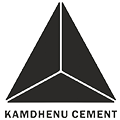Building your dream home is a big decision and every choice matters. From the design to the finishing touches, each element affects the quality and longevity of your house. One of the most important choices in construction is selecting the right cement.
With so many options available in the market, how do you choose the best cement for house construction? In this comprehensive guide, we’ll explain the different types of cement and their applications, and help you make an informed decision.
What is Cement and Why is it Important?
Cement is a key ingredient in construction, acting as the glue that holds together bricks, stones, and other building materials. It’s a fine powder made from calcined mixtures of limestone, clay, and other minerals, which, when mixed with water, forms a paste that hardens over time.
Cement is essential for the strength and durability of your house. It determines how well your house can withstand various environmental conditions, such as heat, moisture, and chemical attacks. It also affects the workability, finish, and appearance of your house.
Types of Cement and Their Applications
Different types of cement are available in the market, each with its advantages and disadvantages. Here are some of the most common ones:
Ordinary Portland Cement (OPC)
OPC is the most widely used type of cement in construction. It’s versatile and suitable for a wide range of applications, including residential, commercial, and industrial construction.
OPC comes in different grades, such as OPC 33, OPC 43, and OPC 53, indicating their compressive strength. The higher the grade, the higher the strength and the faster the setting time. OPC 53 is the preferred choice for residential construction, as it offers high strength and durability.
Portland Pozzolana Cement (PPC)
PPC is a blend of OPC clinker and pozzolanic materials, such as fly ash, silica fumes, or volcanic ash. Pozzolanic materials are natural or artificial substances that react with lime and water to form cementitious compounds.
PPC offers several benefits over OPC, such as improved workability, reduced heat of hydration, and enhanced durability. PPC is ideal for residential construction, especially in areas prone to aggressive environmental conditions, such as high humidity, salinity, or sulfate attacks.
Portland Slag Cement (PSC)
PSC is manufactured by blending OPC clinker with granulated blast furnace slag, a by-product of iron and steel production. Blast furnace slag is a glassy substance that contains silicates and aluminates, which react with lime and water to form cementitious compounds.
PSC provides excellent resistance to chemical attacks, especially from chlorides and sulphates, and is highly suitable for marine construction and mass concrete works. PSC cement is also known for its low heat of hydration, making it ideal for large concrete structures, such as dams, bridges, and flyovers.
White Cement
White cement is similar to OPC, but contains minimal iron oxide, giving it a white color. It’s mainly used for architectural purposes, such as decorative finishes, precast cladding panels, and terrazzo flooring. White cement has a high compressive strength, but a low workability and a high cost.
How to Choose the Best Cement for House Construction
Now that you know the different types of cement and their applications, how do you choose the best one for your house construction? Here are some factors to consider:
Assess Your Requirements
Before you select the cement type, consider your specific requirements, such as the type of structure, environmental conditions, and project specifications. For example, if you’re building a load-bearing structure, such as a column or a beam, you’ll need high-strength cement, such as OPC 53 or PSC. If you’re building plastering or flooring work, you’ll need low-heat cement, such as PPC or PSC.
Strength and Durability
Opt for cement with the appropriate compressive strength and durability to ensure the longevity of your structure. Due to their high strength and durability, OPC 53 and PSC cement are preferred for residential construction. They can withstand various environmental conditions, such as heat, moisture, and chemical attacks, and prevent cracks and corrosion.
Environmental Factors
If your construction site is located in a coastal area or subject to aggressive environmental conditions, choose cement with superior resistance to chemical attacks, such as PSC or PPC. These types of cement can protect your house from saltwater, sulfates, chlorides, and other harmful substances, and prevent deterioration and damage.
Cost-Effectiveness
While it’s important to prioritize quality, consider the overall cost-effectiveness of the cement, including initial expenses and long-term maintenance. PSC cement, despite being slightly more expensive than OPC, offers better durability and lower maintenance costs in the long run. It also reduces the consumption of cement, steel, and water, and saves energy and resources.
Consult with Experts
Seek advice from experienced architects, engineers, or construction professionals to ensure you’re making the right choice based on your specific requirements and budget. They can help you select the best cement type, grade, and brand for your house construction, and guide you through the best practices and precautions.
Conclusion
Selecting the best cement for house construction is a crucial decision that significantly impacts the quality and durability of your home. By understanding the different types of cement and their applications, you can make an informed choice that meets your construction needs and withstands the test of time.
Whether you opt for OPC, PPC, or PSC cement, prioritize quality, durability, and suitability for your project requirements. Remember, the foundation of your dream home begins with the right cement choice.
For high-quality cement products that meet industry standards and exceed expectations, trust Kamdhenu Cement. With a wide range of options, including OPC, PPC, and PSC cement, Kamdhenu Cement is your reliable partner in building strong and durable structures that stand the test of time. Visit our website here to explore our products and make the right choice for your construction needs.


